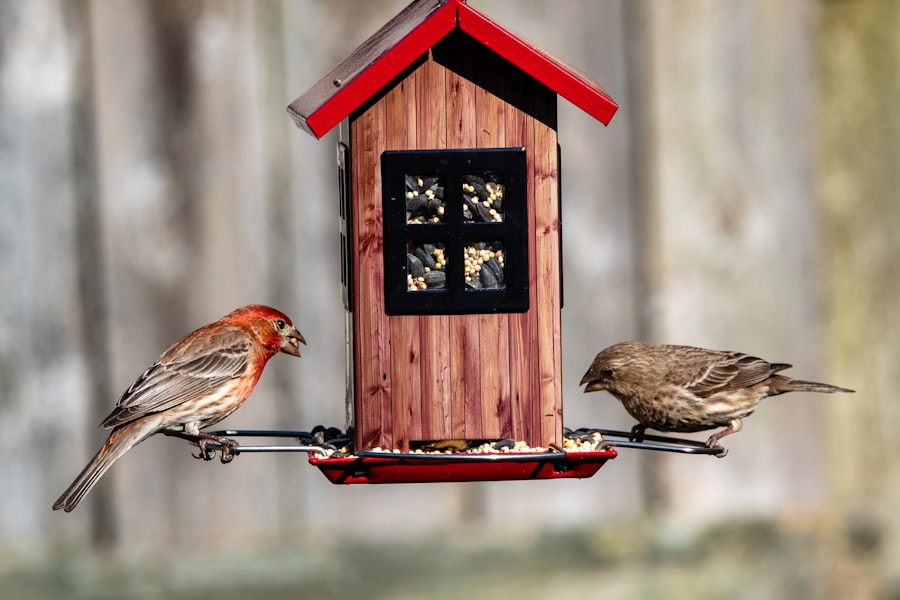Coweta County, Georgia, has established specific regulations for keeping chickens on residential properties. These rules aim to protect the health and safety of both chickens and residents while maintaining community standards. The regulations encompass various aspects of chicken-keeping, including zoning restrictions, property size requirements, coop standards, noise and odor control, and penalties for non-compliance.
Residents interested in keeping chickens must familiarize themselves with these regulations to ensure compliance and avoid potential fines. The county’s guidelines seek to balance the benefits of raising chickens with addressing concerns about noise, odor, and property maintenance. By implementing clear standards, Coweta County promotes responsible animal husbandry and strives to maintain a pleasant living environment for all residents.
Before proceeding with plans to keep chickens, individuals should thoroughly review the county’s regulations and assess their ability to meet all requirements. This proactive approach helps ensure a smooth and compliant chicken-keeping experience within Coweta County.
Table of Contents
- 1 Requirements for Keeping Chickens in Coweta County
- 2 Zoning and Property Size Restrictions
- 3 Health and Safety Standards for Chicken Coops
- 4 Noise and Odor Regulations
- 5 Penalties for Violating Chicken Keeping Regulations
- 6 Resources for Further Information and Assistance
- 7 FAQs
- 7.1 What are the restrictions on keeping chickens in Coweta County?
- 7.2 How many chickens are allowed to be kept on a residential property in Coweta County?
- 7.3 What are the coop requirements for keeping chickens in Coweta County?
- 7.4 What are the setback distances for keeping chickens in Coweta County?
- 7.5 Are there any other regulations or restrictions for keeping chickens in Coweta County?
Key Takeaways
- Coweta County has specific regulations for keeping chickens, including zoning and property size restrictions, health and safety standards for chicken coops, and noise and odor regulations.
- Residents must obtain a permit to keep chickens in Coweta County and adhere to specific requirements, such as the number of chickens allowed and coop maintenance.
- Zoning regulations in Coweta County dictate the minimum property size required for keeping chickens, as well as the distance the coop must be from neighboring properties.
- Health and safety standards for chicken coops in Coweta County include requirements for ventilation, cleanliness, and predator protection.
- Coweta County has noise and odor regulations in place to ensure that keeping chickens does not create a nuisance for neighboring properties. Violating these regulations can result in penalties.
Requirements for Keeping Chickens in Coweta County
Obtaining a Permit
To keep chickens on your residential property in Coweta County, you must first obtain a permit from the county’s zoning department. This permit is necessary to ensure that your property meets the necessary criteria for keeping chickens and that your proposed chicken coop complies with zoning and property size restrictions.
Number of Chickens Allowed
The county imposes limits on the number of chickens that can be kept on a residential property, typically ranging from 4 to 12 chickens depending on the specific zoning district. This limitation is intended to prevent overcrowding and maintain a manageable number of chickens on each property.
Providing Appropriate Housing and Care
Individuals must provide appropriate housing and care for their chickens, including providing a secure coop with adequate space, ventilation, and protection from predators. This is crucial to ensure the health and well-being of the chickens, as well as to maintain a safe and sanitary environment for neighboring properties.
Zoning and Property Size Restrictions

Zoning and property size restrictions play a crucial role in determining whether an individual is permitted to keep chickens on their residential property in Coweta County. Zoning regulations dictate which areas within the county are designated for residential use and may have specific requirements for keeping livestock, including chickens. Additionally, property size restrictions may impact the number of chickens that can be kept on a given property.
It’s important for individuals interested in keeping chickens to review the zoning regulations and property size restrictions specific to their location within Coweta County. Zoning regulations in Coweta County typically designate certain areas as residential zones where keeping chickens may be permitted. However, these regulations may also include specific requirements for setbacks, coop placement, and other considerations related to keeping chickens on residential properties.
Additionally, property size restrictions may impact the number of chickens that can be kept on a given property. For example, properties below a certain size may have limitations on the number of chickens allowed, while larger properties may have more flexibility in this regard. It’s important for individuals to review the specific zoning and property size restrictions applicable to their residential property before proceeding with plans to keep chickens.
Health and Safety Standards for Chicken Coops
The health and safety standards for chicken coops in Coweta County are designed to ensure that the chickens are provided with a safe and sanitary living environment. These standards cover a range of aspects related to chicken coop construction, maintenance, and cleanliness to promote the well-being of the chickens and prevent potential health hazards. Individuals who wish to keep chickens in Coweta County must adhere to these standards when constructing and maintaining their chicken coops.
The health and safety standards for chicken coops in Coweta County typically include requirements for coop construction materials, ventilation, predator protection, and cleanliness. Coops must be constructed using durable materials that provide adequate protection from the elements and potential predators. Additionally, proper ventilation is essential to ensure that the coop maintains a healthy environment for the chickens.
Coops must also be kept clean and free from excessive waste buildup to prevent health hazards and maintain sanitary conditions for the chickens. By adhering to these health and safety standards, individuals can ensure that their chicken coops provide a suitable living environment for their feathered friends.
Noise and Odor Regulations
Noise and odor regulations are important considerations for individuals interested in keeping chickens in Coweta County. These regulations are intended to address potential concerns related to noise disturbances and unpleasant odors that may impact neighboring properties. By establishing clear guidelines for managing noise and odor associated with chicken keeping, the county aims to maintain a peaceful living environment for all residents while allowing individuals to enjoy the benefits of raising chickens.
In Coweta County, noise regulations related to chicken keeping typically address issues such as crowing and other vocalizations that may cause disturbances to neighboring properties. Individuals who keep chickens must take measures to minimize noise disturbances, such as providing appropriate housing and care to address potential causes of excessive noise. Additionally, odor regulations may require individuals to manage waste from their chicken coops in a manner that minimizes unpleasant odors for neighboring properties.
This may include regular cleaning of coops, proper waste disposal, and other measures to prevent odors from becoming a nuisance. By adhering to these regulations, individuals can help ensure that their chicken keeping practices are respectful of their neighbors’ living environments.
Penalties for Violating Chicken Keeping Regulations

Importance of Compliance
Individuals who violate the chicken keeping regulations in Coweta County may be subject to penalties as outlined by the county’s ordinances. These penalties are intended to address non-compliance with regulations related to zoning, property size restrictions, health and safety standards for chicken coops, noise and odor regulations, and other aspects of chicken keeping. It’s important for individuals who keep chickens in Coweta County to familiarize themselves with these penalties and take measures to ensure compliance with all applicable regulations.
Types of Penalties
Penalties for violating chicken keeping regulations in Coweta County may include fines, citations, or other enforcement actions as determined by the county’s ordinances. The specific penalties may vary depending on the nature and severity of the violation. For example, individuals who exceed the allowable number of chickens on their property or fail to obtain a required permit may be subject to fines or citations.
Common Violations and Penalties
Similarly, violations related to health and safety standards for chicken coops, noise disturbances, or odor nuisances may also result in penalties. By understanding the potential penalties for violating chicken keeping regulations, individuals can take proactive measures to ensure compliance and avoid potential enforcement actions.
Resources for Further Information and Assistance
For individuals seeking further information and assistance regarding chicken keeping regulations in Coweta County, there are several resources available to provide guidance and support. The Coweta County government website is a valuable source of information where individuals can access relevant ordinances, permit applications, and other resources related to chicken keeping regulations. Additionally, contacting the county’s zoning department or animal control office can provide individuals with direct assistance and clarification regarding specific regulations and requirements.
Furthermore, local community organizations or poultry associations may offer valuable resources and support for individuals interested in keeping chickens in Coweta County. These organizations may provide educational materials, workshops, or networking opportunities where individuals can learn more about responsible chicken keeping practices and connect with other poultry enthusiasts in the area. By utilizing these resources, individuals can gain a better understanding of the regulations governing chicken keeping in Coweta County and access support as they navigate the process of obtaining permits and establishing suitable living conditions for their feathered companions.
In conclusion, Coweta County’s regulations for keeping chickens on residential properties are designed to promote responsible animal husbandry practices while addressing potential concerns related to zoning, property size restrictions, health and safety standards for chicken coops, noise and odor regulations, and penalties for non-compliance. By familiarizing themselves with these regulations and taking proactive measures to ensure compliance, individuals can enjoy the benefits of raising chickens while maintaining a harmonious living environment for themselves and their neighbors. Accessing available resources for further information and assistance can provide valuable support as individuals navigate the process of keeping chickens in Coweta County.
If you’re interested in learning more about the process of hatching chicken eggs naturally, you should check out this article on Poultry Wizard. It provides valuable information on the incubation period and the steps involved in successfully hatching chicken eggs. This could be especially helpful for those in Coweta County who are considering keeping chickens and want to understand the breeding process better.
FAQs
What are the restrictions on keeping chickens in Coweta County?
In Coweta County, there are specific regulations regarding the keeping of chickens on residential properties. These regulations include the number of chickens allowed, coop requirements, and setback distances from property lines and neighboring homes.
How many chickens are allowed to be kept on a residential property in Coweta County?
In Coweta County, the number of chickens allowed on a residential property is limited to a certain number, typically around 6-12 chickens. It is important to check the specific regulations with the county government to ensure compliance.
What are the coop requirements for keeping chickens in Coweta County?
Coweta County has specific requirements for chicken coops, including size, construction materials, and cleanliness. Coops must provide adequate space for the chickens to move around and should be secure to prevent predators from accessing the chickens.
What are the setback distances for keeping chickens in Coweta County?
In Coweta County, there are setback distance requirements for chicken coops from property lines and neighboring homes. These setback distances are in place to minimize the impact of keeping chickens on neighboring properties and to ensure the health and safety of the chickens.
Are there any other regulations or restrictions for keeping chickens in Coweta County?
In addition to the specific regulations mentioned above, Coweta County may have additional requirements for keeping chickens, such as noise regulations, waste management, and permits. It is important to thoroughly research and understand all regulations before keeping chickens on a residential property in Coweta County.
Meet Walter, the feathered-friend fanatic of Florida! Nestled in the sunshine state, Walter struts through life with his feathered companions, clucking his way to happiness. With a coop that’s fancier than a five-star hotel, he’s the Don Juan of the chicken world. When he’s not teaching his hens to do the cha-cha, you’ll find him in a heated debate with his prized rooster, Sir Clucks-a-Lot. Walter’s poultry passion is no yolk; he’s the sunny-side-up guy you never knew you needed in your flock of friends!







